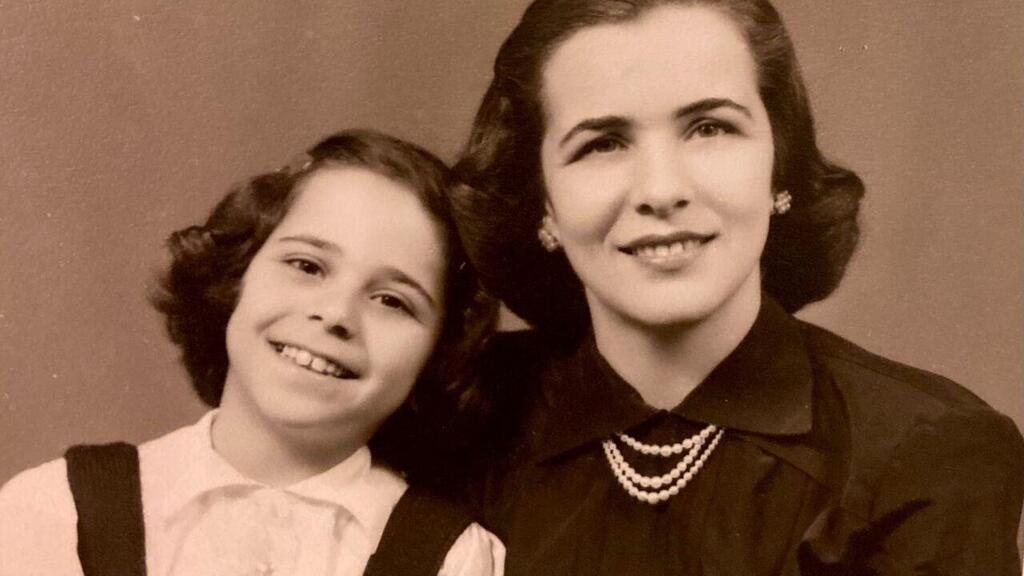Getting your Trinity Audio player ready...
There are approximately 245,000 Holocaust survivors still living today in 90 countries, a report released by the Conference on Jewish Material Claims Against Germany (Claims Conference) ahead of the International Holocausts memorial day found.
Read more:
Nearly half (49 percent) of all Jewish survivors live in Israel, with an additional 18 percent in North America and 18 percent in Western Europe. At the time of publication, the median age of survivors is 86; ages range from 77 years to over 100, with birthdates reaching back as far as 1912.
Most of the survivors (95%) were children during the Holocaust, 20% of them are over the age of 95. The report finds 61% are women and 39% men.
Nearly 40 percent of survivors receive monthly payments through Claims Conference programs negotiated with Germany, while the remaining population are eligible for one-time or annual payments, the report says. "Forty percent of survivors are currently receiving or have received in the past year social welfare services provided by over 300 agencies that receive grants administered by the Claims Conference. Services include homecare, food, medicine, transportation socialization and other services specific to the individual needs of survivors."
Rose Girone, born in 1912, is the oldest living Holocaust survivor. ""As a survivor and daughter of a survivor, I cannot stress enough how important it is to share our testimonies," her daughter Reha Bennicasa said. "Personally, I am pleased that my mother has reached 112 years of age, and to learn that she is the oldest Holocaust survivor. My Mother and I survived German and then Japanese oppression. Her strength throughout this horror and in all other facets of her life are amazing. She is a wonderful example to me and, hopefully, to the world. Given the declining survivor population and the rise in antisemitism, we need to encourage the world to learn about our collective history so that the Holocaust will never happen again.”
Greg Schneider, Executive Vice President of the Claims Conference, said, “The numbers in this report are interesting, but it is also important to look past the numbers to see the individuals they represent. These are Jews who were born into a world that wanted to see them murdered. They endured the atrocities of the Holocaust in their youth and were forced to rebuild an entire life out of the ashes of the camps and ghettos that ended their families and communities. The data forces us to accept the reality that Holocaust survivors won’t be with us forever, indeed, we have already lost most survivors.”
Dani Dayan, Yad Vashem Chairman said, "I would like to express my heartfelt gratitude to the Claims Conference for compiling this crucial report about Holocaust survivors today. This demographic study is a warning to me, highlighting the current demographic state of Holocaust survivors globally. It underlines the urgency of our work to continue gathering and researching the testimonies and names of these remarkable individuals before the survivor generation disappears. May their presence continue to strengthen our resolve to shape a better future."
Michael Berenbaum, Distinguished Professor of Jewish Studies at American Jewish University, said, “This clear and comprehensive report highlights important data analysis across many disparate compensation and social welfare programs as only the Claims Conference can do. It also demonstrates that even as the number of survivors decreases day by day, the needs of those who are still alive only increases. At the same time, it illustrates that we have many countries with only a handful of these extraordinary individuals still gracing our world, underscoring the urgency of learning from their survival and resilience. This is it, this is our last chance to recognize them, to celebrate them and to learn from them. We should all be asking ourselves what we are doing to make that happen before it is too late.”
The Claims Conference founded in 1951 has worked to secure "a measure of justice," for Jewish survivors of the Nazi atrocities. As a result of negotiations with the German government it had achieved and administered several compensation programs that provide payment to survivors and grants to over 300 social agencies worldwide.
"The facilitation of these programs, funding and services has led to a global compilation of information on Jewish Holocaust survivors. This information, while not the only resource, served as a foundation of the Global Demographic Report on Jewish Holocaust Survivors. The report summarizes data on the demographic composition of Jewish Holocaust survivors worldwide, outlining country of birth as well as current country of residence, age, sex and what percentage of survivors are receiving various compensations and services," the report said.




